- Home
- /
- Media
- /
- Internal News
AI Experiential Camp 2025 Concludes Successfully
On August 8, the AI Experiential Camp 2025, a cutting-edge technological initiative jointly organized by The Chinese University of Hong Kong (CUHK) Shenzhen Research Institute (SZRI) and EduAIR, concluded its program successfully. Over the course of these five transformative days, students engaged in comprehensive exploration of AI, processing from foundational concepts to hands-on experience with state-of-the-art AI technologies.
Theoretical foundations of AI
The AI theory curriculum employed pedagogical approaches that systematically deconstructed complex concepts through relatable case studies and accessible language. Instructors facilitated knowledge acquisition by drawing parallels between familiar daily phenomena and core technological principles, effectively demystifying abstract AI concepts. They made abstract technical principles visible and tangible, translating algorithms and models into relatable everyday analogies.
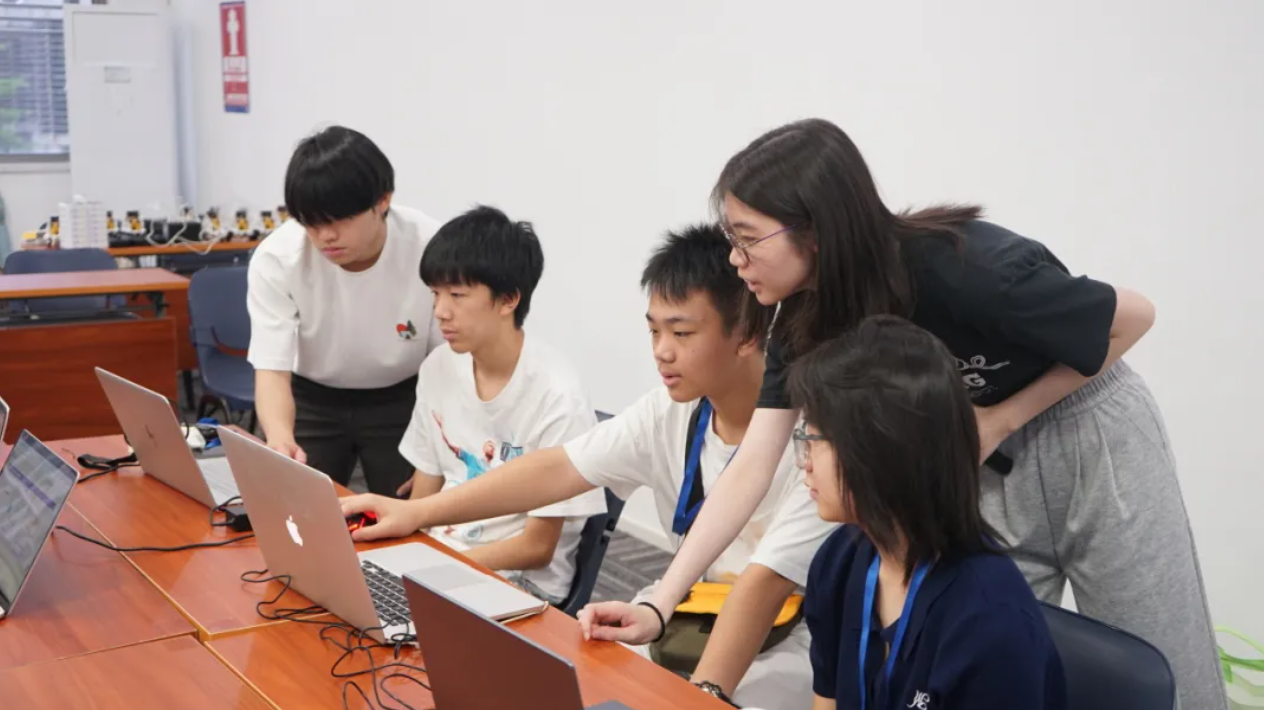 AI Model Training Competition
AI Model Training Competition
The theoretical knowledge acquired was evaluated through an AI model training competition, which served to spark students’ intellectual engagement. This practical component not only reinforced theoretical understanding but also demonstrated the iterative nature of AI development, emphasizing the critical role of continuous experimentation and algorithmic refinement in technological advancement.
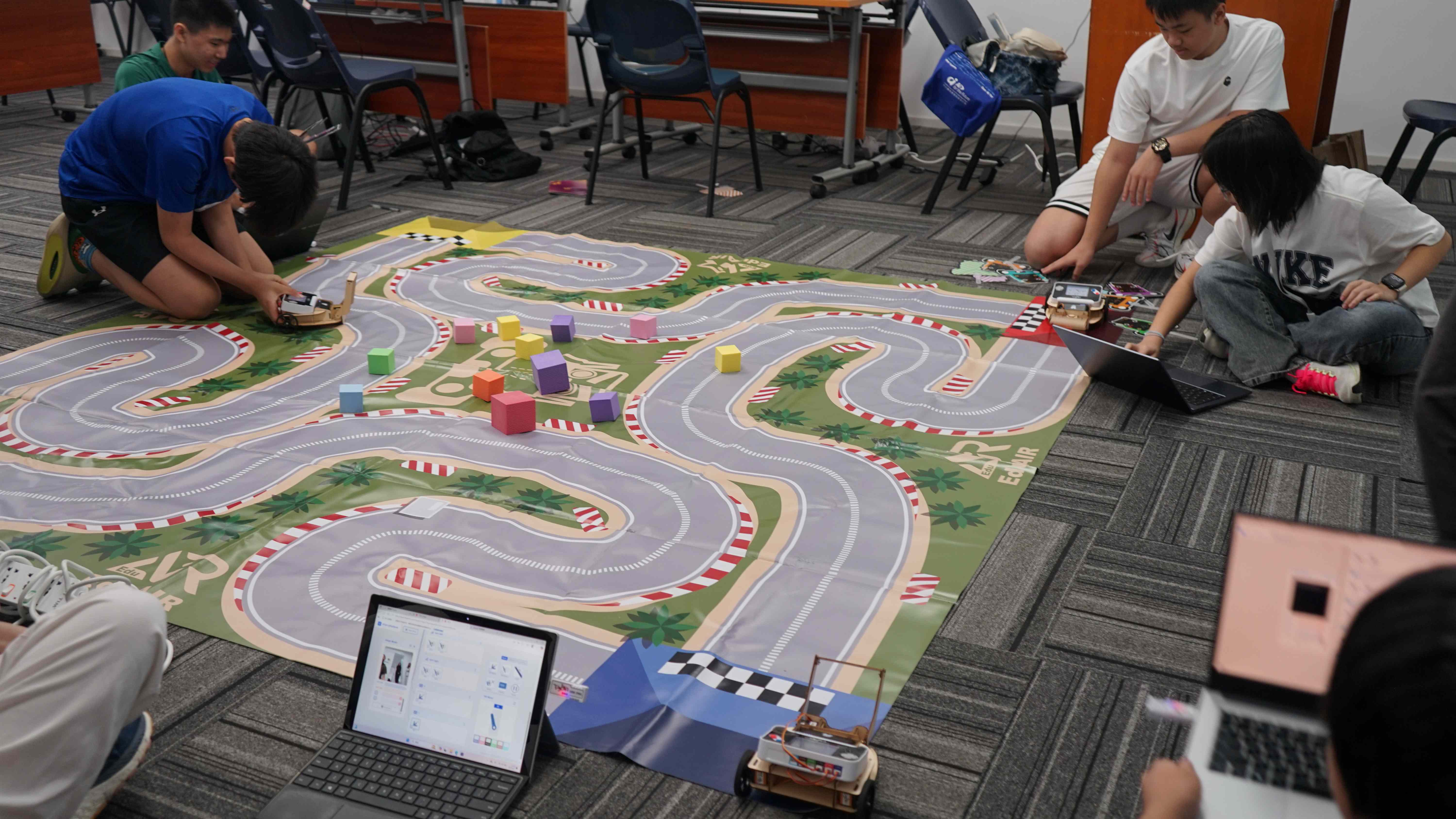
Python programming Learning and Application
In the Python syntax introductory model adopted a scaffolded learning approach, commencing with elementary programming constructs. Instructors employed metaphorical explanations to clarify programming logic, guiding students through progressive exercises ranging from basic numerical operations to conditional flow control structures.
Simulated Product Launch
The highlight of the course was a simulated product launch, where students worked in groups to integrate their acquired knowledge to conceptualize and present AI-driven solutions. Innovative products designed by students included voice-controlled electric fans, smart access control systems, smart nose brushes, and healthcare safety monitoring systems. The projects spanned from daily life, entertainment to medical domains. Instructors also provided on-site evaluation and constructive recommendations for product optimization during the demonstration.
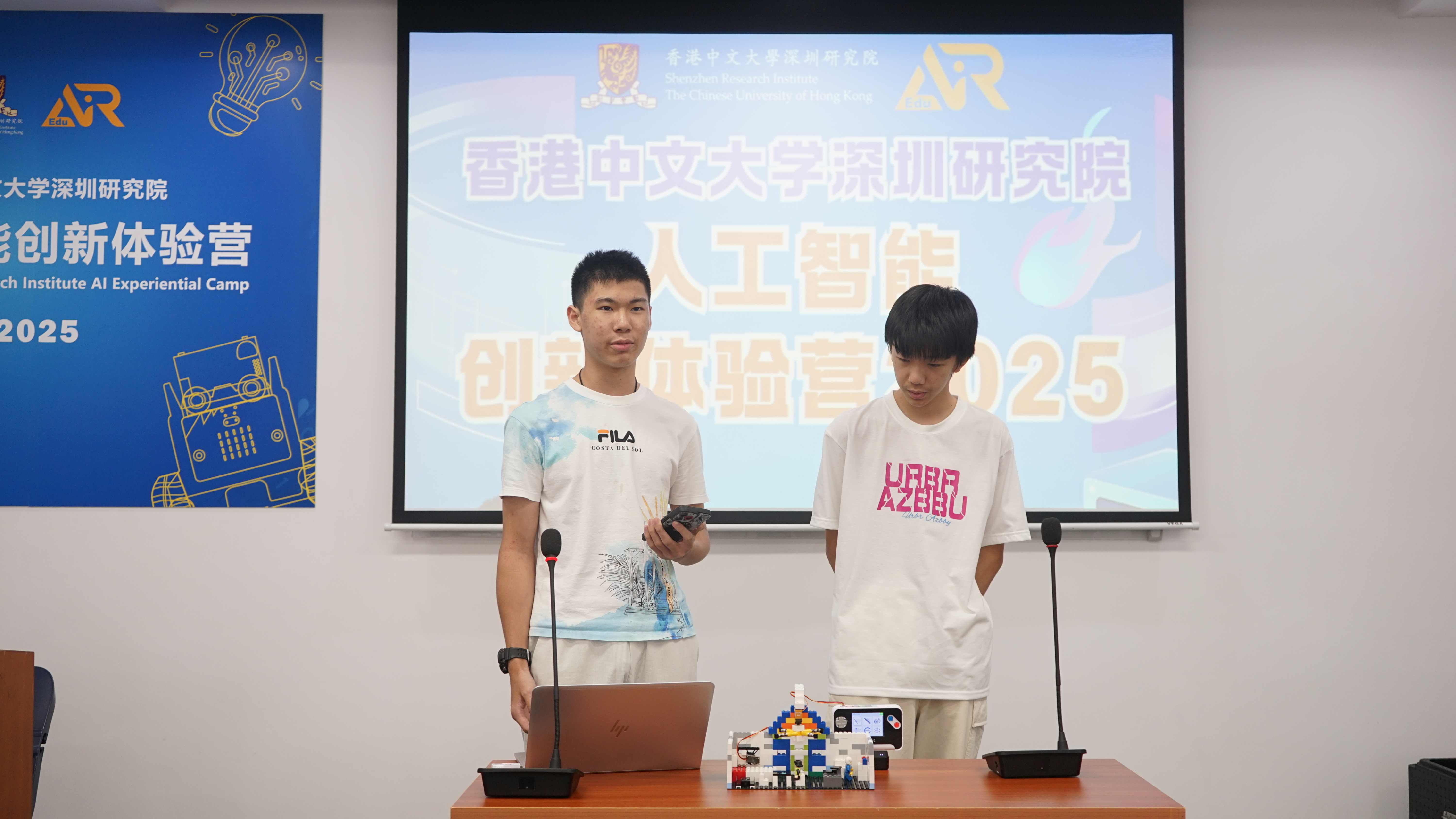
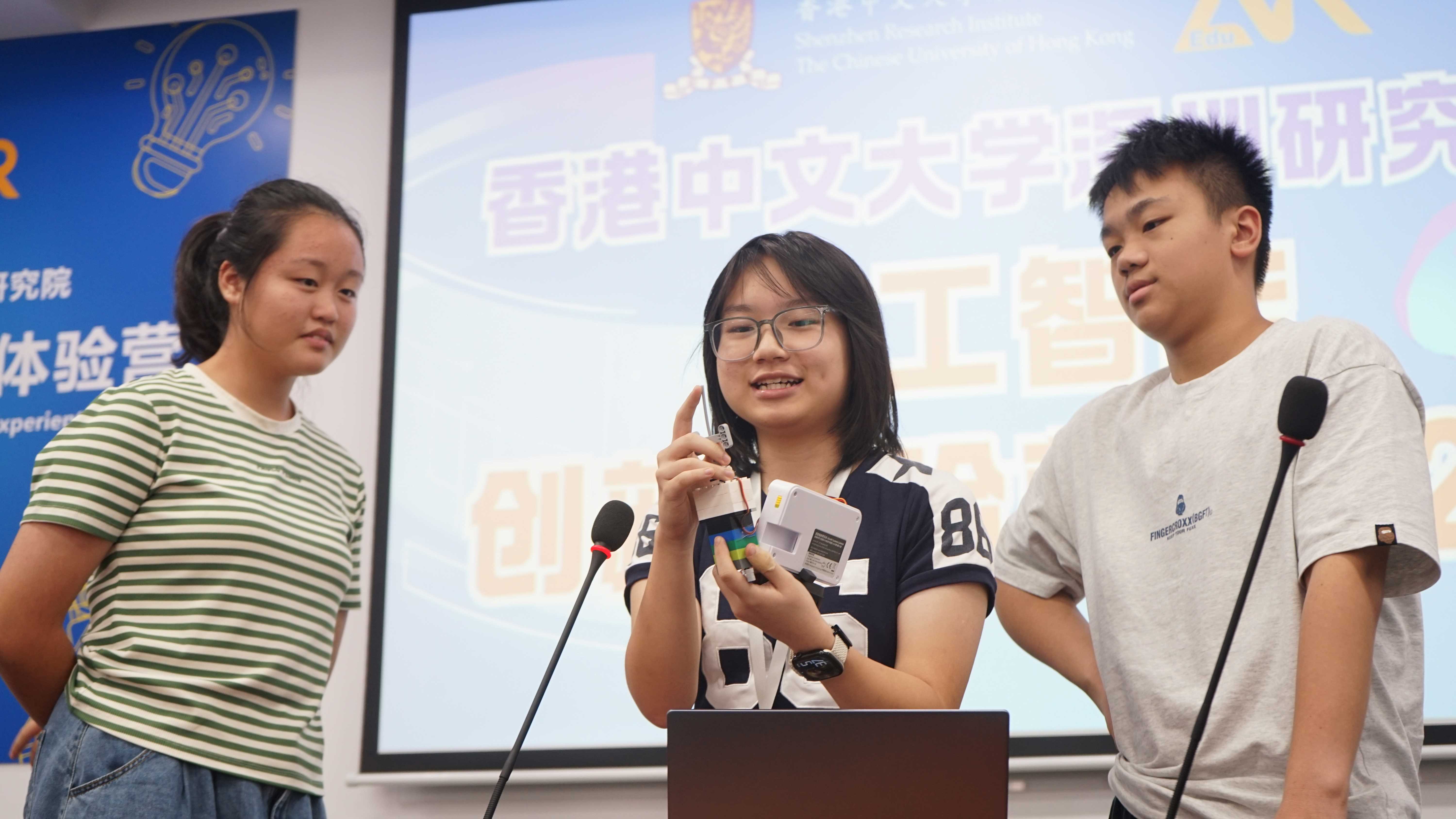
CUHK Campus Tour
Students also undertook an academic visit to CUHK’s AI Education and Exploration Lab, where they explored various AI devices and installations. The immersive experience also included an exploration of the institution’s distinguished historical legacy in technological innovation.
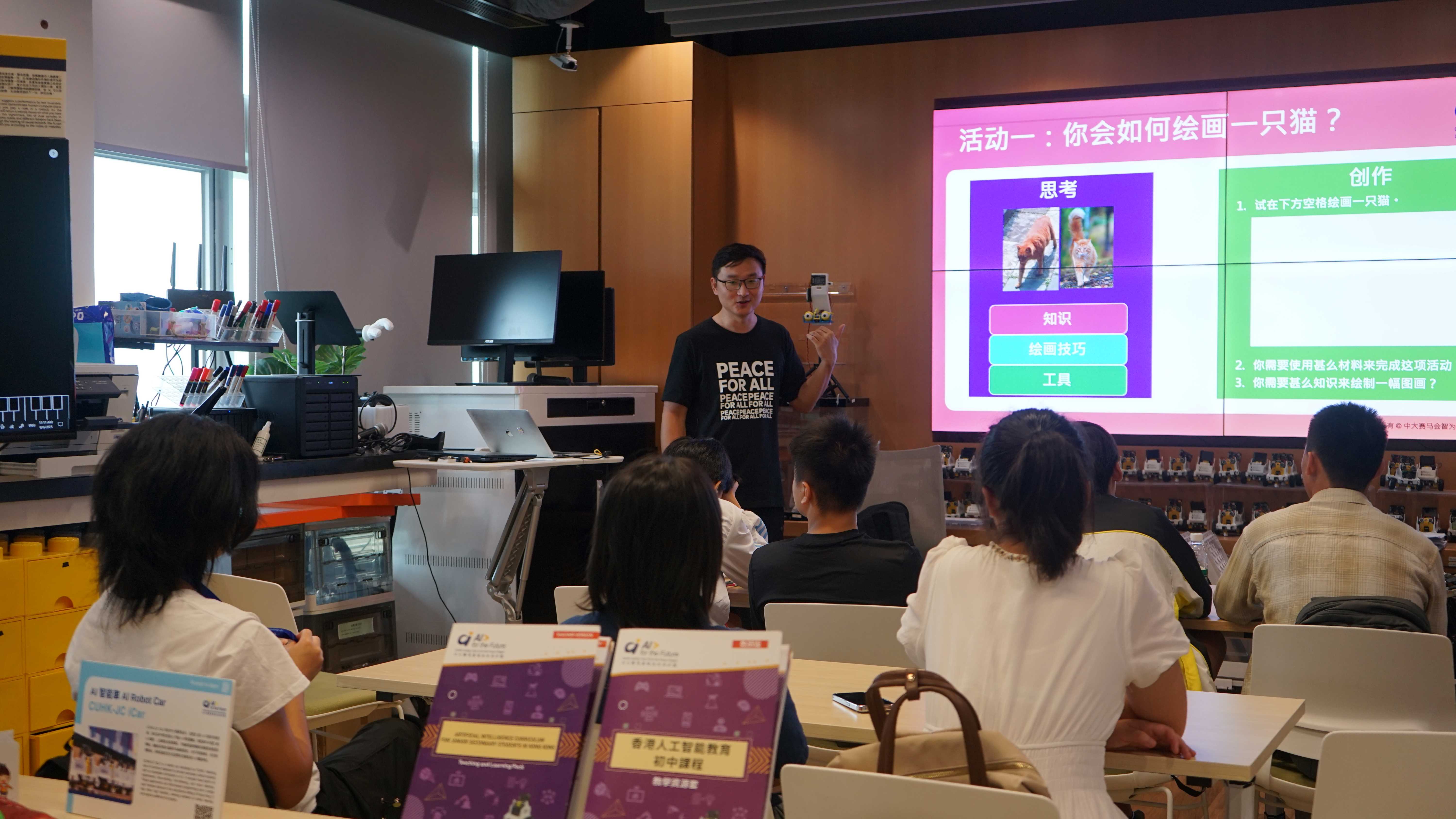
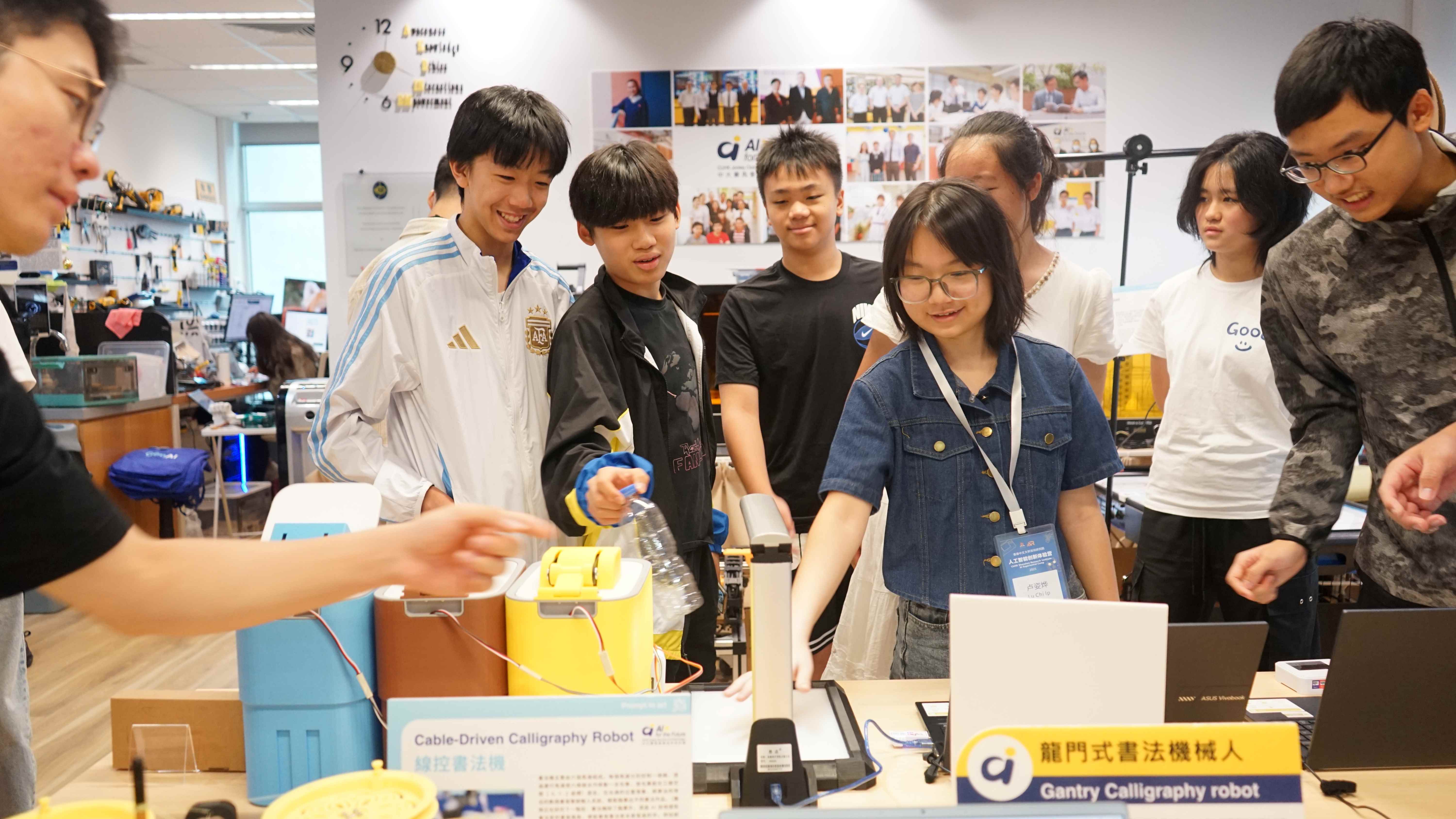
This experiential program transcended conventional knowledge dissemination, offering participants a transformative intellectual journey from theoretical frameworks to practical implementation, from algorithmic development to product innovation. Upon completion, students departed not merely with certification, but with profound experiential understanding and enduring professional inspiration in the field of AI.







